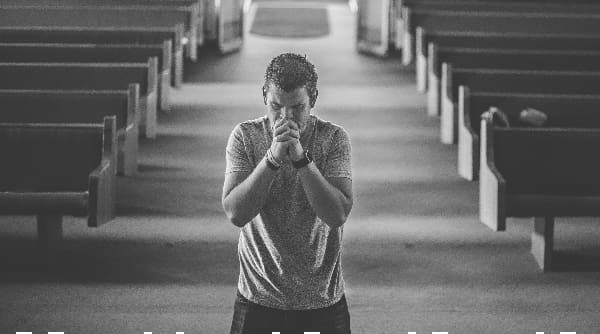God has created all things for good, all things for their greatest good, everything for its own good. What is the good of one is not the good of another; what makes one man happy would make another unhappy. God has determined, unless I interfere with his plan, that I should reach that which will be my greatest happiness. He looks on me individually, he calls me by my name, he knows what I can do, what I can best be, what is my greatest happiness, and he means to give it to me.
God knows what is my greatest happiness, but I do not. There is no rule about what is happy and good; what suits one would not suit another. And the ways by which perfection is reached vary very much; the medicines necessary for our souls are very different from each other. Thus God leads us by strange ways. We know he wills our happiness, but we neither know what our happiness is, nor the way. We are blind. Left to ourselves we would take the wrong way; we must leave it to him. Let us put ourselves into his hands and not be startled even though he leads us by a strange way, a mirabilis via, as the Church speaks. Let us be sure he will lead us right, that he will bring us to that which is, not indeed what we think best, nor what is best for another, but what is best for us.
O my God, I will put myself without reserve into your hands. Wealth or woe, joy or sorrow, friends or bereavement, honor or humiliation, good report or ill report, comfort or discomfort, your presence or the hiding of your countenance: all is good if it comes from you. You are wisdom and love—what can I desire more? You have led me in your counsel, and with glory have you received me. What have I in heaven, and apart from you what want I upon earth? My flesh and my heart fail: but God is the God of my heart, and my portion forever.
God was all complete, all blessed in himself, but it was his will to create a world for his glory. He is almighty and might have done all things himself, but it has been his will to bring about his purposes by the beings he has created. We are all created to his glory; we are created to do his will.
I am created to do something or to be something for which no one else is created. I have a place in God’s counsels, in God’s world, which no one else has. Whether I be rich or poor, despised or esteemed by man, God knows me and calls me by my name.
God has created me to do him some definite service; he has committed some work to me which he has not committed to another. I have my mission—I may never know it in this life, but I shall be told it in the next. Somehow I am necessary for his purposes, as necessary in my place as an archangel in his—if, indeed, I fail, God can raise another, as he could make the stones children of Abraham. Yet I have a part in this great work; I am a link in a chain, a bond of connection between persons. He has not created me for naught.
I shall do good. I shall do his work. I shall be an angel of peace, a preacher of truth in my own place, though not intending it, if I do but keep his commandments and serve him in my calling.
Therefore I will trust him. Whatever, wherever I am, I can never be thrown away. If I am in sickness, my sickness may serve him; in perplexity, my perplexity may serve him; if I am in sorrow, my sorrow may serve him. My sickness, or perplexity, or sorrow may be necessary causes of some great end, which is quite beyond us. He does nothing in vain. He may prolong my life; he may shorten it. He knows what he is about. He may take away my friends. He may throw me among strangers. He may make me feel desolate, make my spirits sink, hide the future from me—still he knows what he is about.
O Adonai, O Ruler of Israel, you who guide Joseph like a flock, O Emmanuel, O Sapientia, I give myself to you. I trust you wholly. You are wiser than I—more loving to me than I am to myself. Deign to fulfill your high purposes in me whatever they be—work in and through me. I am born to serve you, to be yours, to be your instrument. Let me be your blind instrument. I ask not to see. I ask not to know. I ask simply to be used.
+
This article is adapted from a chapter in Everyday Meditations by St. John Henry Newman which is available from Sophia Institute Press.
Art for this post: Cover and featured image used with permission.





